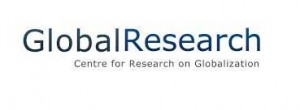Fernwood Publishing:
Understanding Further Cuba–U.S. Relations
There are two crucial aspects, among others, that are arising in the aftermath of the December 17, 2014, simultaneous announcements by Raúl Castro and Barack Obama. The first concerns “democracy”. In his December 17th announcement, Obama referred to “democracy” in relationship to Cuba no less than four times. In the same vein, also targeting Cuba, he enunciated American “values” on six occasions, also supposedly applicable universally including to Cuba. Cuba for its part has clearly indicated that its approach to democracy and political system consists of its own sovereign decision; the internal political landscape of Cuba is not up for negotiation. However, even considering this, there are many questions being raised in public opinion: What is indeed Cuba’s path to democracy? How do “American values” stack up against the Cuban approach to democracy, political system and elections? Does Obama’s fixation with American values linked to the U.S.-centric view on democracy hinder mutual understanding of different political systems and electoral processes?
The second feature emerging out of U.S.-Cuba Relations in the form of subsequent declarations and press conferences by both sides is “U.S. Policy toward Cuba”. Do the positive measures taken by Obama constitute a change in policy and strategy of the U.S. toward Cuba? Or do they constitute a change in tactics while maintaining the over-all objective? What is in fact the U.S. strategy in Cuba? How do Obama’s tactics and over-all objectives toward Cuba play out as part of his over-all approach to international relations since being elected in 2008.
The issues of both “democracy” in Cuba and “U.S. Policy Toward Cuba” are dealt with in the book published by Fernwood Publishing, CUBA AND ITS NEIGHBOURS: DEMOCRACY IN MOTION by Arnold August. In fact, as the title indicates, the main theme is democracy in Cuba. On the other hand, one of Cuba’s neighbours that the title deals with is the United States and specifically the study of Obama in the international arena. Even though the book was published in 2013, thus before the December 17, 2014 Castro-Obama announcements, it is even more relevant now as when it was first published.
More about: Cuba and Its Neighbours, What Lies Across the Water.
Source: Fernwood Publishing Posted on February 10, 2015
See my web site for further information

